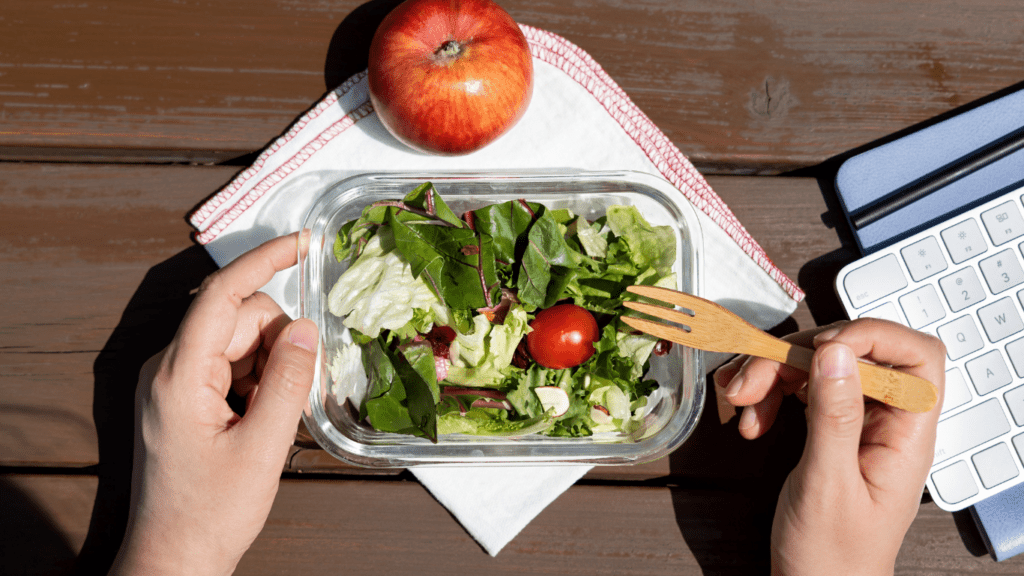Finding small ways to live a healthier life doesn’t have to mean a complete lifestyle overhaul. Whether you’re a busy parent, a student juggling deadlines, or just trying to feel better day to day, sometimes the smallest shifts can make the biggest difference. That’s where the concept of {{keyword}} comes in, offering real-life tips and practical shortcuts for people looking to stay healthy without feeling overwhelmed. You can explore more examples over on {{keyword}}, which is filled with simple strategies you can actually stick with.
What Are Healthy Hacks?
“Healthy hacks” are those little strategies that make it easier to live well — think less about rigid routines and more about achievable choices. They’re often low-effort, high-impact habits that fit easily into your day, helping you eat better, move more, sleep longer, or stress less without a major time commitment.
For example:
- Prepping your meals on Sundays so you’re not scrambling midweek.
- Swapping out sugary drinks for naturally flavored water.
- Turning a Netflix session into a stretching opportunity.
- Keeping cut veggies at eye level in the fridge for grab-and-go snacking.
These hacks are about making health accessible. No fancy gear, memberships, or strict rules. Just small modifications that add up.
Why Small Changes Stick
Massive change usually fails. Why? Because it’s exhausting. Healthy habits are most sustainable when they’re built gradually, not forced in overnight.
Science backs this up. Behavioral researchers often talk about “habit stacking” — the idea that if you attach a new habit to one you already do (say, brushing your teeth), it’s more likely to stick. Want to do squats or stretch daily? Try doing them right after brushing in the morning.
Healthy hacks succeed because they work with your existing life, not against it. They sneak health into parts of your day you weren’t using optimally.
Food Hacks That Make Nutrition Easier
Eating healthy doesn’t have to mean cooking every meal from scratch or cutting out your favorite dishes entirely. Here are a few practical nutrition hacks to try:
- Use frozen produce. It’s just as nutritious as fresh, lasts longer, and saves you both time and money.
- Double your protein. Add a boiled egg, Greek yogurt, or leftover chicken to your salad, so it fills you up longer.
- Portion control without measuring. Use smaller plates or bowls — it tricks your mind but manages serving sizes effectively.
- Prep grab-and-go breakfasts. Overnight oats, muffin-tin omelets, or smoothies you can freeze in batches reduce morning stress.
These are the kinds of ideas you’ll find thoughtfully curated in the {{keyword}} roundup — fast solutions that make real-life eating smarter, not stricter.
Movement Without “The Workout”
Getting active doesn’t have to mean hours at the gym or following a complicated fitness plan. The key is to sneak movement into your routine in a way that feels natural:
- Take phone calls standing or pacing.
- Set a timer every hour to stretch or do 10 squats.
- Park farther away when running errands.
- Try YouTube 10-minute workouts or walk-and-talk meetings.
Consistency beats intensity. Little daily movements can collectively have major health benefits — improved circulation, better posture, and even enhanced mood.
Mental Health Counts Too
Your emotional wellness matters just as much as your diet or workout routine. Here are a few healthy hacks that support a better mental space:
- Two-minute journaling. Jot what you’re grateful for or proud of — even if it’s just “I made the bed.”
- Practice saying no. Not every request needs a “yes.” Protecting your time protects your health.
- Digital detox lights. Pick one hour before bed where screens are off to help you wind down naturally.
- Routine check-ins. Ask “How am I really doing?” once a day — and listen to the answer.
The {{keyword}} approach includes strategies that balance mental health with physical habits, recognizing that one influences the other.
Kid-Friendly Hacks That Work for Families
When you’re managing a household, it helps when your health decisions benefit everyone. Try these family-friendly ideas:
- Let kids help cook. They’re more likely to eat what they prepare.
- Make movement a game — obstacle courses in the backyard or dance parties in the living room.
- Prep snack bins with healthy options like nuts, fruit, or cheese sticks within easy reach.
- Use screen time as a reward for outdoor time — not the default.
You’ll find that many of the tips from {{keyword}} are designed to suit a range of lifestyles — solo dwellers, couples, and especially busy families looking to find balance day by day.
Why It’s Not About Perfection
Here’s the truth: You don’t need to hit 10,000 steps every day, eat clean seven nights a week, or remember your supplements 100% of the time.
Health isn’t about being flawless — it’s about being consistent enough to feel better in your life. The whole purpose of strategies like those in {{keyword}} is to give you tools that reduce friction and help you stay on track through the ups and downs.
Success is progress, not perfection.
Final Takeaway: Start Small, Win Big
If there’s one takeaway from diving into healthy habit-building, it’s this: Anchor your changes in realism. One hacked breakfast, one walk during lunch, one decision to drink water over soda — it all adds up faster than you think.
Don’t underestimate how much better you can feel from a few focused changes. The {{keyword}} lifestyle isn’t about trendy solutions or complicated systems — it’s built around the things real people actually do, and stick with.
So find one or two hacks that work for your rhythm — then scale up at your pace. Better habits don’t require a full reset. They just need a good head start.



